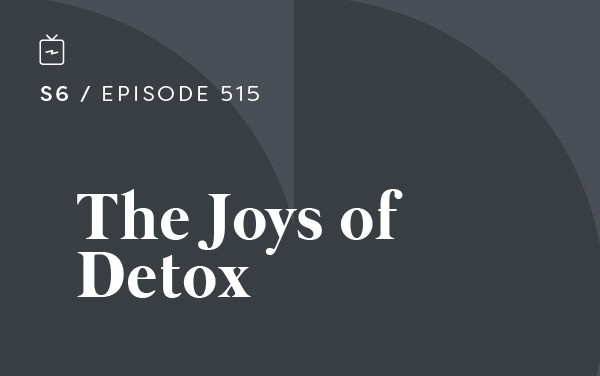
by Kris Oyen | Dec 30, 2024 | Podcast
Podcast: Play in new window | Download
Subscribe to the Recovery Elevator Podcast Apple Podcasts | | More
Episode 515 – The Joys of Detox
Today we have Patrick. He’s 43 years old from Montreal, Quebec and took his last drink on November 11th, 2024.
Join Recovery Elevator for our Restore Dry January course. This is our most intensive course, and it’s all about accountability. This is the best setup we’ve had yet for this course as participants get access to all of Café RE, including the chats and the community when they sign up for the course.
Recovery Elevator’s first ever Men’s Retreat will be April 5th through the 12th in Costa Rica. We’ve got space for 12 guys. Registration for this event opens December 30th at 8AM EST.
AG1 – offering new subscribers a free $76 gift when you sign up
[3:58] Thoughts from Paul:
**DISCLAIMER** alcohol is the most dangerous substance to detox rom. Listen to your body and seek medical attention if you think you need to.
It doesn’t matter what you’re eliminating from your diet, the body does not like change. Studies have shown that when we take that first step forward in making change, the body can and will create chemicals of discomfort to pull you back into your comfort zone.
Part of the withdrawal from alcohol is your dopamine center learning how to create it’s own dopamine again, but much of this discomfort is your body rebuking any change whatsoever. Yes, there will be some discomfort but after doing Recovery Elevator for ten years, Paul says that not one person he has met has regretted there decision to quit drinking. It’s a one-way street once you begin to feel and see the benefits.
[7:57] Paul introduces Patrick:
Patrick is 43 years old and lives in Montreal, Quebec. He works in the administrative field at a hospital, and he enjoys running (5k every day), spending time with his friends and watching TV.
Patrick says he was born prematurely and wants to share that Fetal Alcohol Disorder exists. Both of his parents were alcoholics, and he had to parent them early in his life. At the age of 13, Patrick became responsible for his mother’s care when she was diagnosed with Korsakoff Syndrome. He tried to help get her sober, but she was unable to and she ended up passing when she was 42 and Patrick was 16.
Patrick says that while in school he drank mainly on the weekends with friends. After school he moved to Montreal and says that drinking was glorified in his community. This continued until his mid thirties when he met someone and fell in love. His drinking stopped without him noticing.
Their relationship changed when his partner decided to move to the US. They ended the romantic relationship but remained close friends. Not long after COVID hit, Patrick and his friend were talking on the phone, and his friend told him that he was struggling with addiction. Patrick was planning to meet up with him and talk about their common issues, but unfortunately his friend passed away from an overdose.
Not being able to have any closure after his friends passing, Patrick’s drinking picked up from functional to full time. He started to recognize his mother in himself and decided to quit drinking cold turkey. This lasted for several months but then he landed back where he was.
This November Patrick quit again and says this time he feels more stable. He has sought assistance from doctors and attends 12 step meetings along with mediation and running. He realizes that one drink is not an option. In order to reinforce the plan to stay sober, Patrick meditates and has learned to say “no” to events that will challenge his sobriety, he is avoiding places where he used to purchase alcohol, he has friends he can call on and he does at least seven meetings each week.
Patrick’s parting piece of guidance: listen to your inner voice. Give 12 step meetings a try. Have an open mind and listen. You’ll learn about others and most importantly, you learn about yourself.
Recovery Elevator
Go big, because eventually we’ll all go home.
I love you guys.
Café RE
RE merch
Recovery Elevator YouTube
Sobriety Tracker iTunes
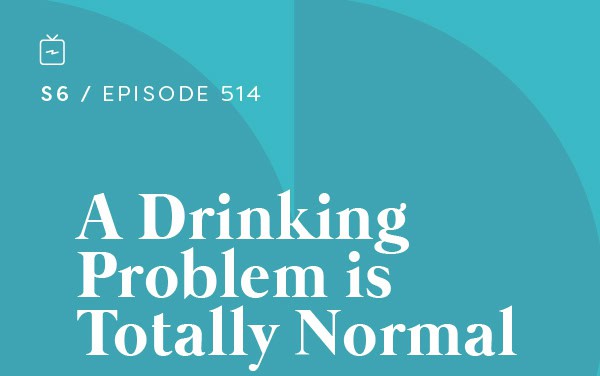
by Kris Oyen | Dec 23, 2024 | Podcast
Podcast: Play in new window | Download
Subscribe to the Recovery Elevator Podcast Apple Podcasts | | More
Episode 514 – A Drinking Problem is Totally Normal
Today we have Erin. She is 50 years old from Denver, CO and took her last drink on August 21st, 2023.
Registration for Dry January is now open. This is our most intensive course, and it’s all about accountability. If you’ve been trying to quit drinking and haven’t found success, it’s most likely you’re not surrounded by the right people or don’t have community. Over 70% of our Restore Dry January participants report making it through January without taking a drink.
Café RE is the social app for sober people. We meet over 30 times a month online with our daily chats covering all different topics or specialty chats. If you’re looking for accountability with others who are ditching the booze or have already done so, we’d love to have you.
[02:48] Thoughts from Paul:
Paul’s opinion is that a drinking problem is a normal response to living in a culture that has completely lost its marbles. Most anthropologists believe that addiction is a modern phenomenon that stems from how we are living as a culture.
Eckhart Tolle in his book A New Earth says that what we have labeled as “normal” regarding our culture is actually completely insane.
Gabor Mate recently wrote The Myth of Normal about how our culture is toxic and right for addiction. According to Dr. Mate, addiction isn’t a disease but a completely normal response to living in a fucked-up world.
Your drinking problem is not your fault. It is a response to a fractured world. You found a solution, a way to cope and it worked for a while. As Laura McKowen says, “it’s not your fault but it is your responsibility”.
Listening to a sobriety podcast is part of you taking that responsibility.
[08:08] Paul introduces Erin:
Erin is 50 years old and divides her time between Colorado and Costa Rica. She has been married for 26 years and they have three college age children. Erin has a yoga business where she films YouTube videos, hosts retreats and does yoga teacher training.
Erin says her drinking was “normal” throughout high school and college. After graduating from college, she and her boyfriend moved to Maui and had jobs in the restaurant industry. She still feels her drinking was normal compared to her friends and lifestyle.
They soon moved back to Colorado, got married and started a family. Erin didn’t drink throughout her pregnancies and didn’t feel she was missing out initially. After moving into a neighborhood with other young families like there, drinking became a social activity, and Erin began to recognize she drank more and had a higher tolerance than others.
In her mid-forties, Erin started going through perimenopause and it was hard on her. She began using alcohol to self-medicate. Because of her job, she felt she was living out of alignment with her values. In spite of her drinking being a huge topic with her therapist, she was not ready to seek treatment. She attempted to quit on her own and says she white knuckled for five months before going back to drinking, quickly back to where she was before quitting.
When her husband and her friends tried to intervene, she was angry. They had already arranged everything, and Erin ended up going to rehab and in spite of her fear, ended up being a great experience.
Erin says they focused on healing the whole person, and once she realized for the first time that she was not alone, she felt the shame and fear lift. It was a small community, and they participated in a lot of modalities for healing. The education was a helpful part of the process.
Erin dove into books, podcasts, attended AA meetings, and joined Café RE which she considers her primary resource. Erin says her yoga practice has contributed to her healing.
Erin’s parting piece of guidance: If you are thinking you can’t do it, you can. It’s possible and worth every single second of pain.
Recovery Elevator
It all starts from the inside out.
I love you guys.
RE merch
Recovery Elevator YouTube
Sobriety Tracker iTunes
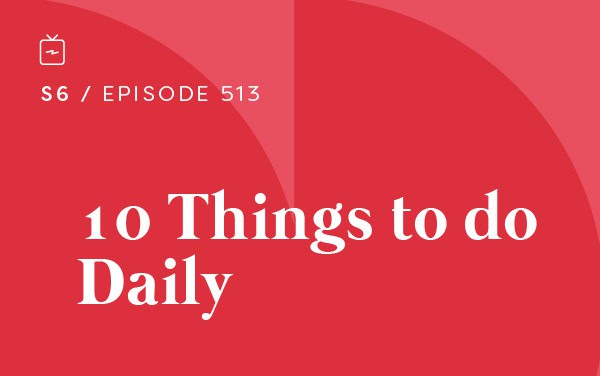
by Kris Oyen | Dec 16, 2024 | Podcast
Podcast: Play in new window | Download
Subscribe to the Recovery Elevator Podcast Apple Podcasts | | More
Episode 513 – 10 Things to do Daily
Today we have Forrest. He is 31 years old from Atlanta, GA and took his last drink on March 14th, 2022.
Sponsors for this episode:
Visit Sober Link to learn more and to get a promo code for $50 off of the device.
Registration for Dry January is now open. This course is all about accountability, connection, and having fun. We come together 14 times in the month of January via Zoom, and you’ll also find yourself in smaller breakout rooms where you can connect with others who are ditching the booze.
If you enjoy the Recovery Elevator podcast, please help spread the word by leaving a review wherever you listen from.
[03:38] Thoughts from Paul:
Paul shares a list of recommendations of little things to dry and do daily. The best way to make change in your life is with small, intentional steps towards your goal.
- Water – at least once per day, drink as much water as you can. Dehydration causes a lot of our fatigue later in the day.
- Meditation – for a few minutes each day, turn your gaze inward.
- Posture – stand up, pull your shoulders back, arch your back, look to the sky and hold it for 30 seconds.
- Fuel – make a point to eat one healthy item daily and be conscious about it.
- Movement – five minutes of light to moderate movement each day.
- Nothing – literally, do nothing. Start slow with as little as one minute.
- Play – try new hobbies or rediscover old ones.
- Learn and grow – read a book or watch a YouTube video about something that interests you.
- Connect with another human being – Ideally one you can be yourself around.
- Make someone else’s life better – A tremendous amount of happiness will come to you when you help someone else out.
[10:28] Paul introduces Forrest:
Forrest grew up in a household where alcohol was present, but he was never exposed to overindulgence. He also had little interest in trying it and says he didn’t have his first drink until late freshman year of college where it was a beer pong situation. Forrest says his drinking during college looked very normal.
After graduating, Forrest found himself with a corporate job and the happy hours that came with it. Between the happy hours several days of the week and the shenanigans he pursued with his other friends in their early twenties, Forrest started to notice his alcohol consumption increase. After a few occasions of questioning himself about the previous nights, a voice told him that he wasn’t ready to quit, but he definitely needed to start moderating.
After attempting moderation for a while, Forrest determined it was not helping. The process of quitting started for Forrest when he joined a health challenge with a friend. It wasn’t long into the challenge when he started noticing some benefits but returned to his old habits after 45 days and ended up back where he was when he began. Forrest began to negotiate with himself that after his birthday, he would try to go alcohol free again. It was March when he looked at himself and realized he needed to quit for at least a year.
Forrest started reading a lot of quit lit and listening to podcasts. Learning the science behind alcohol use disorder was very helpful for Forrest. Within the first year of quitting drinking, Forrest lost 60 pounds and was seeing many other positive changes in his body. He started finding physical activity easier and began to enjoy it again.
Forrest’s parting piece of guidance: if there is something in your mind that gives you an inkling that you need to question your alcohol consumption habits, there is nothing wrong with seeking knowledge, doing research, and you might come across a journey that you didn’t necessarily know was in your future.
Recovery Elevator
You took the elevator down; you got to take the stairs back up.
I love you guys.
We are doing this.
RE merch
Café RE
Recovery Elevator YouTube
Sobriety Tracker iTunes
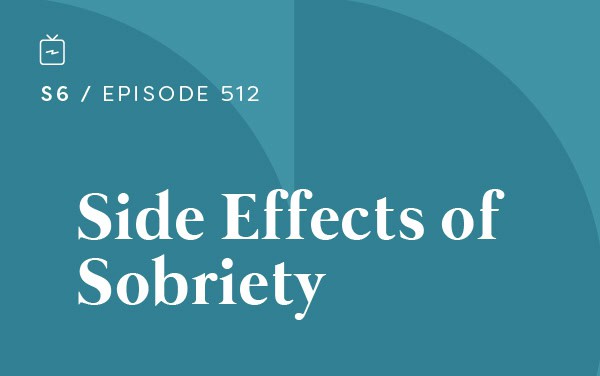
by Kris Oyen | Dec 9, 2024 | Podcast
Podcast: Play in new window | Download
Subscribe to the Recovery Elevator Podcast Apple Podcasts | | More
Episode 512 – Side Effects of Sobriety
Today we have Tammy. She is 61 years old from San Diego, CA. She took her last drink on September 6th, 2021.
Sponsors for this episode:
Better Help – code ELEVATOR for 10% off of your first month
Registration for Dry January is now open. When you sign up for Restore, you not only get access to the course, but you also get access to the whole Café RE community. If you sign up in December, you get access to the community for the rest of December and all of January. This is Recovery Elevator most intensive alcohol-free course. We will meet 14 times in January and it’s all about accountability.
Free Relapse Prevention Plan
[04:26] Thoughts from Paul:
Paul recently came across a post from someone who recently quit drinking, and they included a list of things they no longer suffer from. Or this could be said that these are the possible side effects of sobriety.
Paul shares the extensive list ranging from the loss of anxiety and depression to improvements to their body – both functions and appearance.
Life is hard in the first place, and you layer on just a couple of the ailments listed, then you’re living life in hard mode. That list really drives the point home that alcohol is taking way more than it is giving.
Paul is a big fan of pen to paper, pro and con sheets, all that jazz. He suggests writing down for yourself what you’ve experienced when you take some time off booze and imagines it’s going to look similar to the list he just shared.
[08:30] Paul introduces Tammy:
Tammy is 61 years old and lives near San Diego. She is married and together they have six adult children. She worked in advertising before having children and after they were older, she became a real estate agent. For fun, Tammy started writing a book about her alcohol-free journey, and also enjoys researching her ancestry.
Tammy says her drinking began as typical binge drinking on the weekends in high school and then escalated a bit in college. After graduating she began to work in advertising where drinking during the day was normal. Tammy’s drinking cut back after she started having her children. She says she didn’t drink very often while raising her daughters.
After turning 40, Tammy began allowing herself a glass of wine at the end of the day. It was used as a reward for making it through the day with three young children. After the financial crisis, Tammy and her husband had to sell their dream house. There was a lot of strain on their marriage as well and they eventually divorced. Finding herself alone raising three daughters, Tammy would start drinking more.
After she began dating her current husband, Tammy says her drinking slowed down. He was sober but didn’t mind that she drank. After a while they got engaged and moved in together. Tammy says things were going great and then COVID lockdown found the family coming and going a lot, and it was a party all the time. She was exhausted all the time and even though she knew it was due to her drinking she wasn’t ready to quit. Over the summer after their wedding, she had some failed moderation attempts and there were a lot of birthday parties. After the last party around Labor Day, Tammy had a moment of clarity where she knew she had to quit.
After Tammy had quit, she started reading books and listening to podcasts. She wasn’t interested in AA although she does see it’s value and it helped her husband. The scientific information blew her away, Tammy says. She slept a lot in the first month of sobriety. After that, she began to notice her general health was improving. The value of hearing people’s stories on podcasts has helped Tammy a lot. By writing her book, she wants to help lift people up and show them the way.
Tammy’s parting piece of guidance: get quiet and just listen to yourself and believe in yourself.
Recovery Elevator
You took the elevator down; you got to take the stairs back up.
We can do this.
I love you guys.
RE merch
Café RE
Recovery Elevator YouTube
Sobriety Tracker iTunes
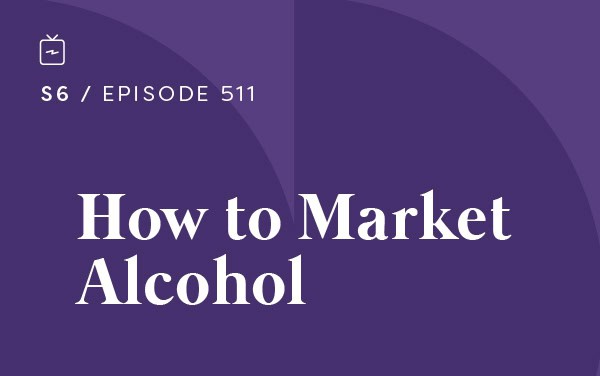
by Kris Oyen | Dec 2, 2024 | Podcast
Podcast: Play in new window | Download
Subscribe to the Recovery Elevator Podcast Apple Podcasts | | More
Episode 511 – How to Market Alcohol
Today we have Arlina. She is 55 years old from Boise, ID and took her last drink 30 years ago.
Restore – registration opens Monday December 2nd. This is Recovery Elevator’s most intensive AF course for someone looking for extra accountability for Dry January.
Recovery Elevator’s first ever AF Songwriting course will be in February 2025. During the six-week course, participants will write, edit and perfect a song that you’ll perform for the cohort in week six.
Sponsors for this episode:
Better Help – code ELEVATOR for 10% off of your first month
[03:09] Thoughts from Paul:
When Dr. David Nut, a British researcher was tasked by the government to put a harm score on 20 of the world’s drugs, it wasn’t crack, heroin, meth or cocaine in the number one spot. It was alcohol. Especially when looking at the economic impact.
Paul says that when he becomes president, he would not attempt prohibition, which was an epic fail in the early 20th century. But he would promote education about the effects of alcohol early and often focusing on the fact that NONE is the healthiest amount to drink.
Also up to be reformed would be taxes, advertising, labeling and taking responsibility for it’s trash and recovery for those affected by their product.
[08:02] Paul introduces Arlina:
Arlina has been sober since April of 1994 when she was 25 years old. Arlina was also a guest on Episode 232 five years ago. She grew up in California but now lives in Idaho. Arlina spent time working as an account executive for both large and small companies, but now enjoys crafty things and making soap. She is married and they have two grown sons and an English bulldog.
Early childhood was difficult for Arlina. After some traumatic events, the idea that something was wrong with her was instilled in her. Arlina began to feel like if she couldn’t be good, she could be good at being bad. Her first drink happened when she was around 9 years old when she had the urge to escape her feelings. Drugs and alcohol anesthetized her pain. Binge drinking was what Arlina did most of her drinking career and says that it was fun at first, then became fun with problems, and finally it was just problems. She says she didn’t have connection with herself, so she was seeking external validation through her drinking.
Two years before quitting, Arlina knew she had a problem and didn’t want abstinence to be the solution, so she tried moderation for a while. Eventually she was able to quit drinking, but it was a few more months before she realized that marijuana caused the same issues for her, and she quit that as well. Arlina shares some concepts from the book What Happened to You? The main concept being that our coping mechanisms used when we are young are repurposed when we are older. She says she has done and continues to do a lot of work to help her stay away from the default.
Arlina has recently written a book called The 12 Step Guide for Skeptics. She hopes with this book that she will show others that the 12-step process is a worthwhile process for everyone.
Arlina still goes to AA meetings even after thirty years of sobriety because it fulfills several things for her. The need for connection, the need for service, review of the information that got her sober and it gives her a place to process her feelings
Arlina’s parting piece of guidance: all the answers are inside of you. Be kind to yourself and just be patient.
Sober Life School
The 12 Step Guide For Skeptics
One Day at a Time
[49:58] Outro:
This podcast isn’t about demonizing alcohol, but we also don’t want to keep our head in the sand. And if we have an opportunity and platform to speak our mind to make positive change, then we have to do it.
Keep showing up, I love you guys.
Recovery Elevator
We took the elevator down; we got to take the stairs back up.
We can do this.
RE merch
Café RE
Recovery Elevator YouTube
Sobriety Tracker iTunes







